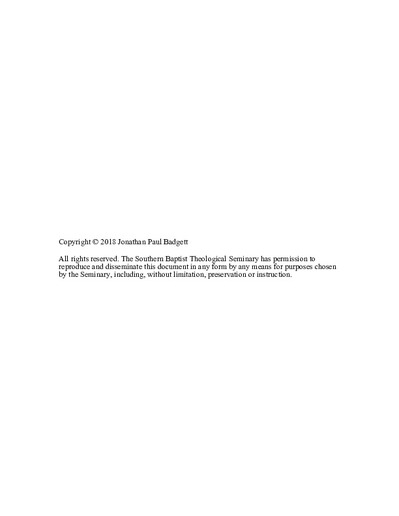| dc.description.abstract | Self-knowledge unavoidably implicates and, in the end, it must presume correspondence. How, indeed, can a self even be posited in the absence of a corresponding other? While the triunity of God reveals a dialectic of unity and correspondence, the human self has ever struggled, within traditions as seemingly diverse as ancient Hellenism and the sundry schools of modern philosophy and psychology, against the presumption that “autonomous self” might not be fatally contradictory. On the other hand, with the lens of orthodox Christology properly affixed, God, self, and others may finally be seen as they truly are. Christ is the revealer of mysteries, the reconciler of God and humanity, and the One in whom all the treasures of (self-)knowledge and wisdom are found. Christian self-knowledge, then, presumes the believer’s ethical correspondence—to God-in-Christ and, through Christ, with fellow believers by means of faith expressing itself in love. When sought in Christian caregiving contexts, this Christ-mediated knowledge of self, over time, counters and undermines the countertherapeutic expression of dissociation and its ethical corollary, self-deception. | en_US |

